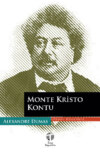Kitabı oku: «The Last Vendée», sayfa 41
XXIV.
MAÎTRE COURTIN'S BATTERIES
A few weeks had sufficed to bring about a radical upsetting of the lives of all those personages who, from the beginning of this narrative, have successively passed under the eyes of the reader.
Martial law was proclaimed in the four departments of La Vendée. The general who commanded them issued a proclamation inviting the country-people to give in their submission, promising to receive it with indulgence. The attempt at insurrection had so miserably failed that the greater part of the Vendéans abandoned all hope for the future. A few of them, who were openly compromised, followed the advice of their own leaders, given when they disbanded them, and gave up their arms. But the civil authorities would not accept this capitulation; they seized the offered arms and arrested their owners. A goodly number of these confiding persons were thrown into prison, and this impolitic severity paralyzed the pacific intentions of those who with greater prudence were awaiting events.
Maître Jacques owed to these proceedings a large increase in the number of his troop; he made so much, and made it so cleverly, out of the conduct of his adversaries, that he finally gathered about him a body of men large enough to still hold out in the forests while the rest of La Vendée disarmed itself.
Gaspard, Louis Renaud, Bras-d'Acier, and other leaders put the sea between them and a stern government. The Marquis de Souday alone could not resolve upon that step. Ever since he had parted from Petit-Pierre-that is, ever since Petit-Pierre had left him-the unfortunate gentleman had completely lost the jovial good-humor with which, as a matter of honor, he had, up to the last moment, opposed the gloomy views of his co-leaders; but as soon as duty no longer forced him to be gay, the marquis dropped to the lower extreme and became, as we may say, sad unto death. The defeat at Chêne not only wounded him in his political sympathies, but it knocked over to their foundations all the castles in Spain he had been so gleefully erecting. He now saw in this partisan existence, which his imagination had been endowing with romantic charm, things he had never dreamed of, – reverses which overwhelmed him, obscure poverty, the mean and trivial privations of an exile's life. He reached a point, – even he, who so recently had thought life in his little castle insufferably insipid, – he reached a point at which he regretted the good, pleasant evenings which the caresses and chatter of his girls made so pleasant, – above all, he missed his gossip with Jean Oullier; and he was so unhappy over the latter's continued absence that he made inquiries about his huntsman's fate with a solicitude not in any way customary with him.
The marquis was in this frame of mind when he one day encountered Maître Jacques loitering about the environs of Grand-Lieu and watching the movements of a column of soldiers. The Marquis de Souday had never had much liking for the master of "rabbits," whose first act of discipline had been to defy his authority. The independent spirit displayed by Maître Jacques had always seemed to the old gentleman a fatal example set to the Vendéans. Maître Jacques, on the other hand, hated the marquis, as he hated all whose birth or social position gave them naturally the position of leaders; and yet he was so touched by the misery to which he saw the old gentleman reduced in the cottage where, after Petit-Pierre's departure, the marquis had taken refuge, that he offered to hide him in the forest of Touvois; promising, besides the good cheer which always reigned in his little camp, and which he proposed to share with him, some amusement in occasional frays indulged in with the soldiers of King Louis-Philippe. Needless to say that the marquis always bluntly called that king "Philippe."
It was the last consideration we have mentioned which determined Monsieur de Souday to accept Maître Jacques' proposals. He burned to avenge the ruin of his hopes, and to make some one pay for his disappointments, for the annoyance his separation from his daughters caused him, and for the grief he felt at Jean Oullier's disappearance. He accordingly accompanied the lord of the burrows, who, from being his subordinate-or rather his insubordinate-now became his protector; and the latter, really touched by the simplicity and good-nature of the marquis, showed him much more considerate attention than his rough exterior and ways of life would seem to promise.
As for Bertha, the day after her retreat to Courtin's house, and as soon as she recovered some strength, she plainly perceived that to be under the same roof with the man she loved, far from the protection of her father, and without Jean Oullier, who could in a way replace him, was, to say the least of it, an impropriety; and, in spite of the fact that Michel was wounded, might be interpreted in a way to injure her reputation. She therefore left the farmhouse and installed herself with Rosine in the Tinguy cottage. This was about three quarters of a mile distant from Courtin's house, where she went daily to give Michel all the care of a sister, and the delicate attentions of a loving woman.
The tenderness, devotion, and self-abnegation of which Bertha gave Michel so many proofs touched the young man deeply; but as they did not in any degree affect his feelings for Mary, his situation became more and more difficult and embarrassing. He dared not think of the despair he might bring into the heart of the young girl to whom he owed his life. Nevertheless, little by little, a gentle resignation did succeed the bitter and violent repulsion he had felt at first, and without habituating himself to the idea of the sacrifice Mary demanded of him, he replied by smiles, which he tried to make affectionate, to the attentions which Bertha showered on him; and when she left his bedside the sigh that escaped him, and which she interpreted as meant for her, alone testified to his inward feelings.
If it had not been for Courtin, who always came to his room as soon as Bertha had disappeared through the trees of the garden, and sitting beside him talked of Mary, Michel's tender and impressionable soul might have ended in resigning itself to the necessities of the situation, and in accepting the fate they made for him. But Courtin talked to his young master so incessantly of Mary, he showed so earnest a wish to see him happy according to his heart's desire, that Michel, as the wound in his arm healed and his strength returned, felt his inward wound reopening, and his gratitude to Bertha disappearing before the image of her sister.
Courtin was doing a work analogous to that of Penelope; he undid at night that which Bertha, with so much care, had done by day. When he brought the young baron to his house the latter's feebleness precluded all necessity of asking pardon for his former conduct; and now, having, as we have heard him tell, got possession of Michel's secret, he managed, by protestations of devotion to his interests and by cleverly encouraging the young man's love for Bertha's sister, to worm himself back entirely into his master's confidence. Michel had suffered as much from not being able to tell his woes as from the woes themselves. Courtin seemed to be so sympathizing, he flattered his dreams so pleasantly, he seemed to admire Mary so truly, that, little by little, he led Michel to betray, if not to confess, what had passed between him and the sisters.
Courtin was very careful, however, not to assume a position hostile to Bertha. He managed, cleverly enough, to make her think he was devoted to the idea of her marriage with his young master. When they met away from Michel he always spoke to her as though to his future mistress; and he did this so well that Bertha, knowing nothing of his antecedents, was constantly talking to Michel of the great devotion of his farmer, whom she called "our good Courtin."
But no sooner was he alone with Michel than he entered, as we have said, into all the latter's secret feelings. He pitied him; and Michel, under the influence of that pity, allowed himself to tell his farmer the incidents of his relation to Mary. Courtin constantly repeated to him, "She loves you;" insinuating that he, Michel, ought to force Mary with a gentle violence, for which she would certainly be grateful, to follow the dictates of her own heart. He even went beyond Michel's own hopes and assured him that as soon as he was well and communications were once more open, he could so arrange matters that, without ingratitude to Bertha, she could be brought to renounce, of herself, the projected marriage.
Michel's convalescence did not progress as rapidly as Courtin desired. He saw, with deep anxiety, the days go by without affording any clue as to Petit-Pierre's actual hiding-place; and he restlessly awaited the moment when he could let loose his young master on Mary's traces, – for, of course, the reader has understood that Michel was the "bloodhound" he had talked of using.
Bertha, relieved of all anxiety about Michel's wound, had made, with Rosine, several trips into the forest of Touvois to see her father in his present refuge. Two or three times after such excursions Courtin had led the conversation to persons concerned in the insurrection in whom the sisters would probably take an interest; but Bertha remained impenetrable; and the farmer was too well aware that the topic was dangerous, and that the slightest imprudence on his part would speedily awaken suspicion, to press such inquiries. Still, as Michel grew better and stronger, he urged him, whenever they were alone together, to come to a determination; offering to take a letter at any time to Mary and bring back her answer, doing his best to make it favorable.
This state of things lasted six weeks. At the end of that time Michel was almost well; his wound had healed and his strength returned. The neighborhood of the post which the general had established at La Logerie prevented the young man from showing himself during the daytime; but as soon as it was dark he walked about the orchard leaning on Bertha's arm. These evening promenades annoyed Courtin, who, so long as Bertha and Michel talked together in the house, could overhear what they said by eavesdropping; and one day he told them positively that their nocturnal rambles must cease. On being asked why, he produced a judgment by default which condemned Michel de la Logerie to death.
This communication produced but little effect on Michel, but Bertha was terror-stricken. She almost flung herself at the young man's feet, and begged his pardon for having enticed him into this fatal position; and that night when she left the farmhouse she was in a state of pitiable agitation.
The next day she came early. All night she had dreamed dreadful dreams, and they followed her waking. She saw Michel discovered, arrested, shot! Two hours earlier than usual she was at the farmhouse. Nothing had happened; nothing seemed to make that day more alarming than other days. It passed as usual, – full of charm mingled with anguish for Bertha; full of melancholy internal aspirations for Michel.
Evening came, – a beautiful summer's evening. Bertha was leaning against a little window looking out into the orchard; she was watching the sunset beyond the great trees of the forest of Machecoul, the tops of which were undulating like waves of verdure. Michel was sitting on his bed breathing in the soft odors of the coming night. Suddenly they heard the wheels of a carriage coming up the avenue.
The young man darted to the window. Both saw a calèche entering the courtyard. Courtin ran to the carriage, hat in hand; a head looked out, – it was that of the Baronne de la Logerie.
Michel, on seeing his mother, felt a cold chill run through his veins; it was evident that she had come for him. Bertha questioned him with her eyes to ask what she ought to do. Michel pointed to a dark corner, – a sort of closet or recess without a door, – where she might hide, and hear all without being seen herself. He thought he should gather strength from her secret presence. Five minutes later the stairs creaked under his mother's step.
Bertha had rushed to her hiding-place and Michel had seated himself near the window, as if he had neither seen nor heard anything. The door opened and the baroness appeared.
Perhaps she had come with the intention of being harsh and stern as usual; but on seeing Michel by the paling light, pale himself as the twilight, she abandoned all severity, and opening her arms, cried out: -
"Oh, my unhappy child! have I found you?"
Michel, who did not expect this reception, was greatly moved; and he flung himself into his mother's open arms crying: -
"Oh, mother, – mother! My good mother!"
She, too, was greatly changed; traces were plainly to be seen upon her face of incessant tears and sleepless nights.
XXV.
MADAME LA BARONNE DE LA LOGERIE, THINKING TO SERVE HER SON'S INTERESTS, SERVES THOSE OF PETIT-PIERRE
The baroness sat down, or rather, fell into a chair, drawing Michel to his knees before her, and taking his head, which she pressed to her lips. At last the words which she seemed unable to bring out came to her.
"Is it possible that you are here in this place, not a hundred steps away from the château, which is full of soldiers?"
"The nearer I am to them, mother," replied Michel, "the less they'll look for me here."
"But don't you know what has taken place in Nantes?"
"What has taken place there?"
"The military courts have passed sentence after sentence."
"That only signifies to those they catch," said Michel, laughing.
"It signifies to every one," said his mother; "for those who are not taken may be taken at any moment."
"Not when they are hiding in the house of a mayor well-known for his Philippist opinions."
"You are none the less-"
The baroness stopped, as if her mouth refused to utter the words.
"Go on, mother!"
"You are none the less condemned-"
"Condemned to death; I know that."
"What! you know it, unhappy boy, and you stay here quietly?"
"I tell you, mother, that as long as I am with Courtin I'm quite safe."
"Then he has been kind to you, has he, that man?"
"He has been simply a second providence. He found me wounded and dying of hunger; he brought me home, and since then he has fed and hidden me."
"I must own I have distrusted him."
"Then you are wrong, mother."
"Maybe so. But talk of our own affairs, my dear child. No matter how well hidden you may be, you cannot stay here."
"Why not?"
"Because a mere chance, the slightest imprudence would betray you." Michel shook his head. "You don't want me to die of terror, do you?" said his mother.
"No no; I will listen to you."
"Well, I shall die of terror if you stay in France."
"But, mother, have you reflected on the difficulties of flight?"
"Yes; and I have surmounted them."
"How so?"
"I have chartered a small Dutch vessel which is now lying in the river opposite to Couéron. Get on board of her and go. God grant that you are strong enough for the journey." Michel did not answer. "You will go to England," continued his mother. "You will leave this cursed land which drank your father's blood; say you will, my son! So long as you stay here I cannot have an easy moment; I fancy at all hours I see the hand of the executioner stretched out to tear you from my arms." Still Michel kept silence. "Here," continued the baroness, "is a letter to the captain; and here too is an order for fifty thousand francs to your credit in England or America. Wherever you are, write to me, so that I may follow and join you. But what is the matter? Why don't you answer me?"
The fact is, Michel received this proposal with an insensibility which almost amounted to stupor. Go away? why, that was to part from Mary! At the mere idea of that separation his heart was so wrung that he fancied he would rather face the death to which he was condemned. Since Courtin had assisted in reviving his passion, he had in his heart conceived new hopes, and without saying a word of them to his farmer, he thought day and night on the means of getting to her. He could not endure the idea of once more renouncing her; and instead of replying to his mother as she developed her plan, he was simply strengthening his determination to be Mary's husband. Hence the silence which, naturally, made the baroness uneasy.
"Mother," said Michel at last, "I do not answer you because I cannot answer as I wish."
"How do you mean, as you wish?"
"Listen to me, mother," said the young man, with a firmness of which at any other time she would have thought him, and perhaps he might have thought himself, incapable.
"You don't refuse to go, I hope?"
"I don't refuse to go," said Michel, "but I put conditions to my going."
"Conditions where it concerns your life, your safety? Conditions before you consent to relieve your mother's agony?"
"Mother," said Michel, "since we last saw each other I have suffered much, and consequently I have learned much. I have learned, above all, that there are moments which decide the whole future happiness or misery of our lives. I am now in one of those moments, mother."
"And you mean to decide for my misery?"
"No; I shall speak to you as a man, that is all. Do not be surprised at that; I was thrown, a child, into the midst of these events, and I have come out of them a man. I know the duties I owe my mother; those duties are respect, tenderness, gratitude, – and those duties I will never evade. But in passing from youth to manhood, mother, horizons open and broaden the farther we go; there we find duties, succeeding those of youth, not exclusively to our family, but also to society. When a man reaches that stage in his life, though he still loves his mother, he must inevitably love another woman, who will be to him the mother of his children."
"Ah!" exclaimed the baroness, starting back from her son with an impulse that was stronger than her will.
"Yes, mother," said the young man, rising, "I have given that love; another love has replied to mine; our lives are indissolubly united; if I go, I will not go alone."
"You will go with your mistress?"
"I will go with my wife, mother."
"Do you suppose that I shall give my consent to that marriage?"
"You are free not to give your consent, mother, but I am free not to leave this place."
"Oh, wretched boy!" cried the baroness; "is this my reward for twenty years of care, and tenderness, and love?"
"That reward, mother," said Michel, his firmness increased by the knowledge that another ear was listening to his words, "you have in the respect I bear you, and the devotion of which I will give you proofs on every occasion. But true maternal love is not a usurer; it does not say, 'I will be twenty years thy mother in order to be thy tyrant;' it does not say, 'I will give thee life, youth, strength, intelligence, in order that all those powers shall be obedient to my will.' No, mother, true maternal love says: 'While thou wert feeble I supported thee; while thou wert ignorant I taught thee; while thou wert blind I led thee. To-day thou art strong and capable; make thy future life, not according to my will, but thine own; choose one among the many paths before thee, and wherever it may lead, love, bless, reverence the mother who made and trained thee to be strong;' that is the power of a mother over her son, as I see it; that is the respect and the duty which he owes to her."
The baroness was speechless; she would sooner have expected the skies to fall than to hear such firm and argumentative language from her son. She looked at him in stupefaction.
Proudly satisfied with himself, Michel looked at her calmly, with a smile upon his lips.
"So," she said, "nothing will induce you to give up this folly?"
"Say rather that nothing will induce me to break my word."
"Oh!" cried the baroness, pressing her hands upon her eyes, "unhappy mother that I am!"
Michel knelt beside her.
"I say to you: blessed mother you will be on the day you make the happiness of your son!"
"What is there so seductive about those wolves?" cried the baroness.
"By whatever name you call the woman I love," said Michel, "I shall reply to you: she has every quality that a man should seek in a wife; and it is not for you and me, mother, who have suffered so much from calumny, to seize, as readily as you have done, on the calumnies told of others."
"No, no, no!" cried the baroness, "never will I consent to such a marriage!"
"In that case, mother," said Michel, "take back those cheques and the letter to the captain of the vessel; they are useless to me, for I will not leave this place."
"What else can you do, you miserable boy?"
"Oh, that's simple enough. I'd rather die than live separated from her I love. I am cured. I am able to shoulder a musket. The remains of the insurrectionary army are collected in the forest of Touvois under command of the Marquis de Souday. I will join them, and fight with them, and get myself killed at the first chance. This is the second time death has missed me," he added with a pallid smile. "The third time his aim may be true and his hand steady."
The young man laid the letters and cheques on his mother's knees. In his tones and gestures there was such resolution and firmness that his mother saw that she cherished in vain the hope of changing him. In presence of that conviction her strength gave way.
"Well," she said, "be it according to your will, and may God forget that you have forced your mother to yield to you."
"God will forget it, mother; and when you see the happiness of your son you will forget it yourself."
The baroness shook her head.
"Go," she said, "marry, far away from me, a stranger I do not know and have never seen."
"I shall marry, I hope, a woman whom you will know and appreciate, mother; and that great day of my happiness will be blessed by your sanction. You have offered to join me wherever I go; wherever that may be I shall expect you, mother."
The baroness rose and made a few steps toward the door.
"Going without a word of farewell, without a kiss, mother? Are you not afraid it may bring me evil?"
"My unhappy boy, come to my arms, to my heart!"
And she said the words with that maternal cry which, sooner or later, must come from a mother's heart. Michel pressed her tenderly to his breast.
"When will you go, my child?" she said.
"That must depend on her, mother."
"As soon as possible, will you not?"
"To-night, I hope."
"You will find a peasant's dress below in the carriage. Disguise yourself as best you can. It is twenty-four miles from here to Couéron. You could get there by five in the morning. Don't forget the vessel's name, – the 'Jeune Charles.'"
"Don't be anxious, mother. The moment I know my end is happiness I shall take every precaution to reach it."
"As for me, I shall go back to Paris and use all my influence to get that fatal sentence revoked. But you-I entreat you, and I repeat it-take care of your life, and remember that my life is wrapped up in yours."
Mother and son again kissed each other, and Michel took his mother to the door. Courtin, as a faithful servitor, was keeping watch below. Madame de la Logerie begged him to accompany her to the château.
When Michel, after locking the door, turned round he saw Bertha, with a smile of happiness on her lips, and a halo of love about her head. She was waiting the moment to throw herself into his arms. Michel received her in them; and if the little room had not been dark she must have seen the embarrassment on the young baron's face.
"And now," she said, "nothing can part us; we have my father's consent, and now your mother's."
Michel was silent.
"Shall we start to-night?"
Still Michel said nothing.
"Well," she said, "why don't you answer me?"
"Because nothing is less sure than our departure," he replied.
"But you promised your mother to go to-night."
"I told my mother it depended on her."
"That is, on me," said Bertha.
"What!" exclaimed Michel, "would Bertha, true royalist and so devoted to the cause, leave France without thinking of those she leaves behind her?"
"What can you mean?" asked Bertha.
"I mean something grander and more useful to the country than my own escape, my personal safety," said the young man.
Bertha looked at him in astonishment.
"I mean the escape and safety of Madame," added Michel.
Bertha gave a cry; she began to understand.
"Ah!" she ejaculated.
"That vessel my mother has chartered for me can take from France not only you and me, but the princess, your father, and," he added in a lower voice, "your sister."
"Oh, Michel, Michel!" cried the young girl, "forgive me for not thinking of that! Just now I loved you; now I admire you! Yes, yes, you are right; Providence itself inspired your mother; yes, I will forget all the hard and cruel things she said of me, for I see in her an instrument of God sent to our succor to save us all. Oh, my friend, how good you are! – more than that, you are grand for having thought of it."
The young man stammered unintelligible words.
"Ah!" continued Bertha, in her enthusiasm, "I knew you were the bravest and most loyal of men; but to-day you have gone beyond my hopes and expectations. Poor child! wounded, condemned to death, he thinks of others before he thinks of himself! Ah, friend, I was happy, now I am proud in my love!"
If the room had been lighted Bertha must have seen the flush on Michel's cheek; he knew what his disinterestedness really was. It is true that after obtaining his mother's consent to marry the woman he loved, Michel had really dreamed of something else, – namely, the idea of rendering to Petit-Pierre the greatest service the most devoted follower could do for her at that moment, and afterward avow all and ask her, as a reward for that service, to procure for him Mary's hand. We can readily imagine his shame and confusion of face in Bertha's presence, and why, to all these demonstrations of the young girl the baron, cold in spite of himself, replied merely: -
"Now that all is arranged for us, Bertha, we have no time to lose."
"No," she said, "you are right. Give your orders. Now that I recognize the superiority not only of your heart but of your mind, I am ready to obey."
"Well," said Michel, "we must part here."
"Why so?" asked Bertha.
"Because you must go to the forest of Touvois and notify your father of what has happened, and bring him away with you. From there you must get to the bay of Bourgneuf, where the 'Jeune Charles' shall stop and pick you up. I shall go to Nantes and tell the duchess."
"You, in Nantes! Do you forget that you are condemned to death and that the authorities are watching for you? It is I who must go to Nantes and you to Touvois."
"But the 'Jeune Charles' expects me, Bertha, and in all probability the captain would obey no one but me; seeing a woman in place of a man he might suspect some trap and throw us into inextricable difficulties."
"But just reflect on the dangers you run in Nantes."
"On the contrary, it may be, if you think of it, Bertha, the very place where I should run the least. They will never suppose that, being condemned to death in Nantes, I should enter the town which condemned me. You know very well that there are times when the greatest boldness is the greatest safety. This is one of those times; and you must let me do as I choose."
"I told you I would obey you, Michel; I obey."
And the proud and beautiful young girl, submissive as a child, awaited the orders of the man who, thanks to an appearance of devotion, had just acquired almost gigantic proportions in her eyes.
Nothing was simpler than the decision they had made and its mode of execution. Bertha gave Michel the address of the duchess in Nantes and the different passwords by which he could gain admittance to her. She herself, dressed in Rosine's clothes, was to reach the forest of Touvois. Michel, of course, was to wear the peasant's costume brought to him by his mother. If nothing occurred to interfere with these arrangements the "Jeune Charles" would be able to sail at five o'clock on the following morning, carrying Petit-Pierre away from France, and with her the last vestiges of civil war.
Ten minutes later Michel was astride of Courtin's pony, saddled and bridled by himself, and taking leave, by a wave of his hand, of Bertha, who returned to the Tinguy cottage, from which she intended to start immediately by a cross-road toward the Touvois forest.




















